QuestionHi sandra
The lump is getting bigger by the day. I went an enquirer at a different vets
today. What do you think are most important questions to ask?
Gas used?
Heat mat used?
What else? Thanks
Vicky
Answer
I have a page on my website about safe surgery. Here is the check list I copied from it for you but also, go to the page and read up some other important issues.
Here is the list I made:
-------------------------
1. Anesthesia: The ONLY anesthesia that is safe for small mammals is either Isoflurane or sevoflurane.
2 Pre surgical exam: Be sure your rat has a complete physical exam and lab work such as a CBC, plasma chemistry panel as well as a urinalysis. It is better to be safe than sorry .
3. Proper equipment: Be sure your vet has the proper equipment to monitor the rats vital signs. This includes a pulse oximeter that is adapted for small mammals. Doppler units can be used to monitor blood pressure. An EKC monitor can also be used but the alligator clips are not sufficient for the small mammal and small needles can be used instead. The equipment must be able to measure heart rates as fast as 300 to 400 bpm. Body temp can be measured by use of a rectal thermometer. The rat is asleep, so he wont be mad about that unless you tell him :)
4. Controlling body temperature: Again, here were are about body temperature. I cant stress enough that it is VITAL to provide warmth during procedures requiring anesthesia. Thermal water blankets used for small animals will work well for small exotics. Heating pads can be used, thermal beds, thermal water pillows/blankets. When the rat is recovering it should be done in a temperature controlled incubator / isolette and body temp is checked until the rat is able to sustain his own body temp and it is at a normal level.
5. Pain medication: Although the rat is given narcotic pain medication before surgery, it is important he or she is kept out of pain during recovery as well. Pain causes stress. Stress weakens the immune system. A weak immune system hinders recovery. There is NO REASON for the rat to be sent home without pain medication. Some vets feel if the rat feels too good from the pain medication they will "over do it" which is foolish. Rats arent stupid. They know when they move a certain way it hurts and they will stop moving the way that hurts them. Metacam is ok to use but its not much better than advil which reminds me, its wise to avoid advil, ibuprofen or tylenol because of the chance it can cause bleeding.
6. Stitches: This brings me back to pain medication again. If the vet is going to pull the stitches too tight, the rat is going to pick at them. If the vet is paranoid about pain meds, the rat is going to pick the stitches with the assumption that the stitches are causing pain. Again the key is to avoid pain and I promise he wont pull the stitches, staples or pick at the surgical glue.
7. Cage mates: The vet may suggest not to put the rat back with his cage mates. For the first 24 hours this is ok, but after that, do it. If you don't, the rat will be stressed from not being with his family and this hinders recovery. In all of my experience I have never seen or heard of a rat mauling another rats incision unless you have a huge mischief of rats that are aggressive and if that is the case, you need to separate them into smaller groups regardless.
8. Antibiotics: This is not something to ignore. It is a MUST! Surgery is invasive. The body is being opened, germs from the outside are getting in. If your rat isn't given antibiotics post op, chances that he or she will end up with some form of infection is high.
Here is the URL to the page on my critter city site:
http://www.freewebs.com/crittercity/surgerysafteyrisks.htm
Hope this helps!

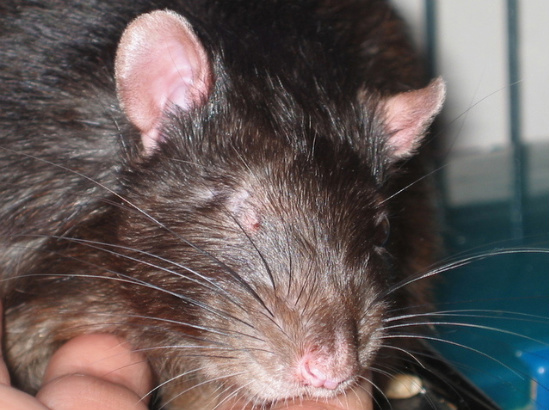 Pet rat not drinking water but still eating
QuestionQUESTION: I have a white male pet rat (Mr. Jing
Pet rat not drinking water but still eating
QuestionQUESTION: I have a white male pet rat (Mr. Jing
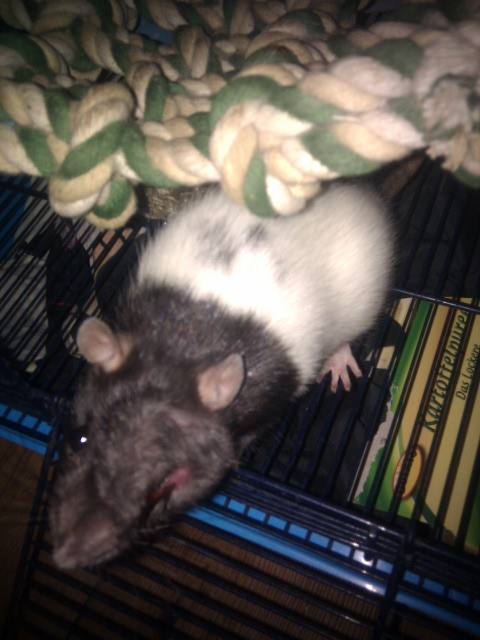 taking a biting rat to the vet
QuestionQUESTION: I have a very sweet ratty who I love
taking a biting rat to the vet
QuestionQUESTION: I have a very sweet ratty who I love
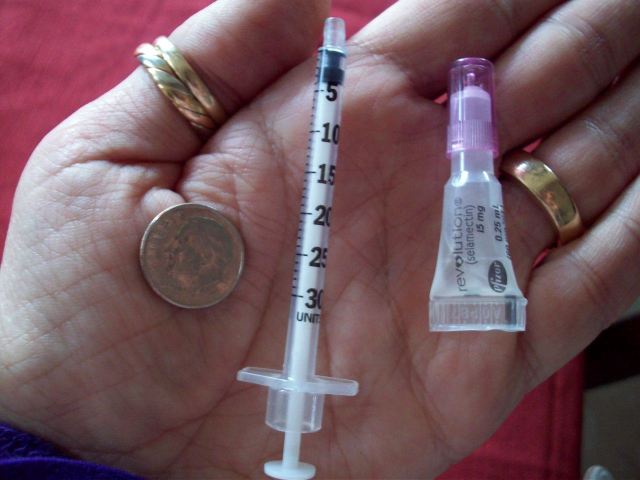 selamectin/ pic
Questionselamectin
QUESTION: Dear Sandra ,
&nbs
selamectin/ pic
Questionselamectin
QUESTION: Dear Sandra ,
&nbs
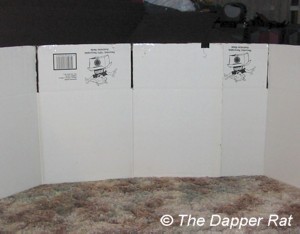 New Rat Sick?
QuestionWe just got two female rats 12 days ago from Pe
New Rat Sick?
QuestionWe just got two female rats 12 days ago from Pe
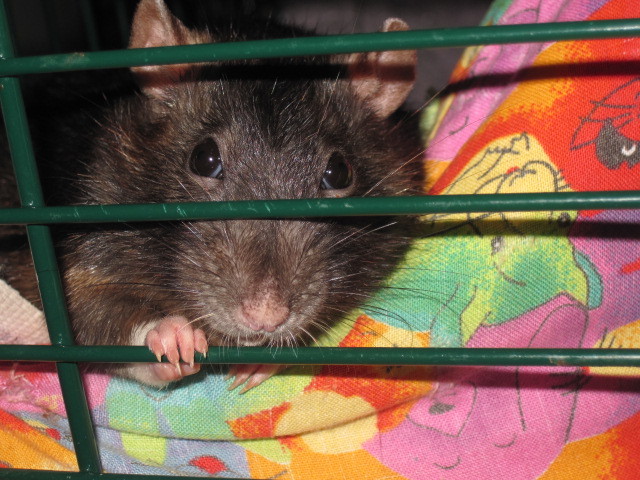 When to say goodbye?
Question
Ebony
My rat Ebony is 2 years and 8 months old
When to say goodbye?
Question
Ebony
My rat Ebony is 2 years and 8 months old